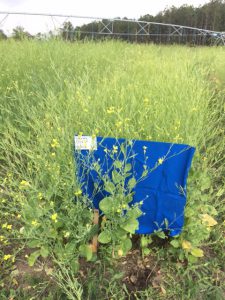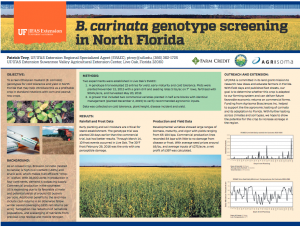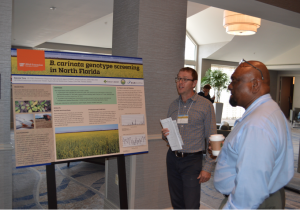Carinata Summit poster session, Pananama City, FL Patrick TROY
Brassica carinata, or Ethiopian mustard, is an oilseed crop native to the Ethiopian highlands with potential for planting in Florida row crops winter rotations. During an otherwise fallow period, B. carinata may provide benefits as a cover crop and income through diverse products like biofuel and animal feedstocks. Already grown on 36,000 acres and 4 continents, the market for renewable fuels and sustainable agriculture is increasing.
Screening advanced carinata genotypes for adaptation to the southeast US helps determine what plant attributes and varieties are best suited to local climate and production methods. With replicated trials in North Florida, the University of Florida/Institute for Food and Agriculture in Live Oak planted 22 lines in November 2016. Seed was provided from industry leader Agrisoma’s advanced breeding stock. Metrics for evaluation included maturity dates, cold tolerance, disease, plant height, and yield.
Results from this trial showed large variations in biomass, yield and vigor among lines with yields ranging from 64-104 bpa. Commercially available varieties recorded 84 bpa with little or no damage form disease or frost. With average seed prices of $8/bu, and input costs of $275/ac, net profits of $397 were calculated.
Although not directly measured, carinata may also serve multiple ecosystem services as a cover crop in reducing soil erosion, reducing nutrient leaching (especially after heavy nitrogen users like corn), increasing soil organic matter, improving water holding capacity and provide other biological soil health benefits.


 0
0

